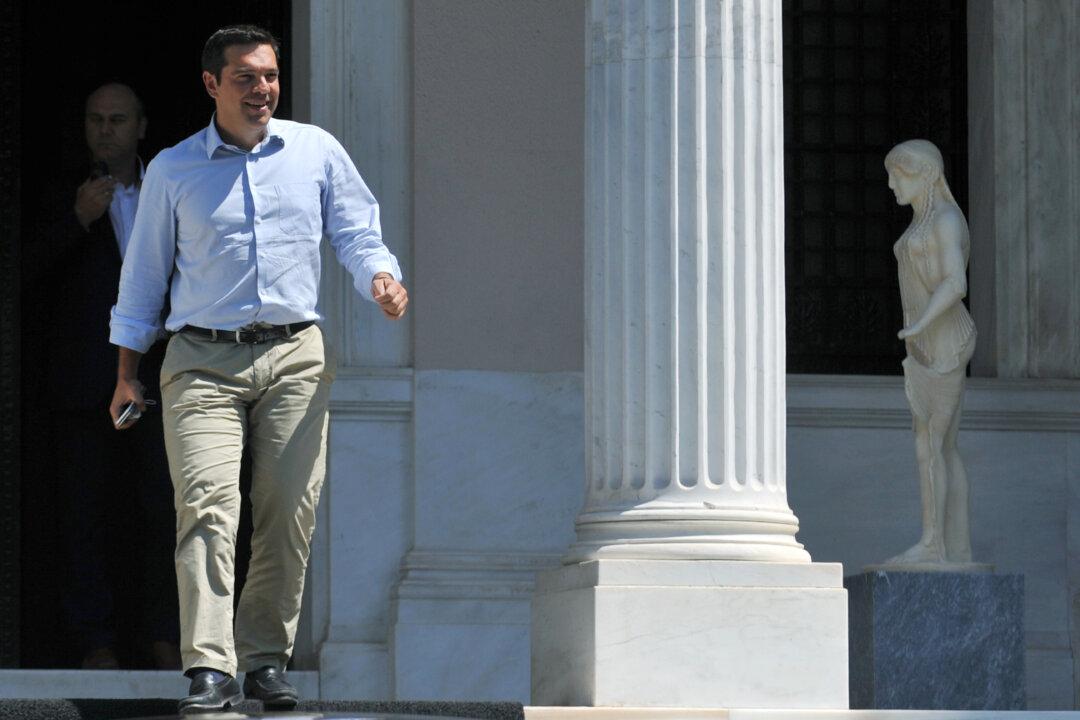ATHENS, Greece— Greek Prime Minister Alexis Tsipras announced his government’s resignation and called early elections Thursday, an attempt to get a new mandate to implement a three-year bailout program that sparked a rebellion within his radical left party.
In a televised address to the nation Thursday night, Tsipras defended his government’s negotiating tactics and said Greece got the best deal possible for its 86 billion euro ($95 billion) bailout from other eurozone countries.
But the bailout is conditional on Greece imposing stringent spending cuts and tax hikes — the very measures Tsipras won elections in January vowing to repeal. His U-turn in accepting the demands by the country’s creditors led to outrage among hardliners in his Syriza party, with dozens voting against him during the bailout’s ratification in parliament last week. The bailout was approved solely thanks to support from opposition parties.





